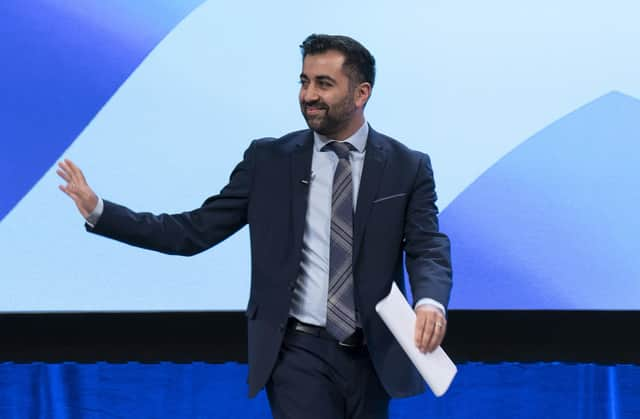SNP must focus more on the concerns of voters


First Minister Humza Yousaf needs to turn his party’s fortunes around but delegates spent much of yesterday discussing another independence referendum he has no authority to call and which most Scots do not want.
Nine years after the 2014 vote, the focus of the electorate is increasingly on more pressing issues such as Scotland’s economy, health service and education system.
Advertisement
Hide AdAdvertisement
Hide AdYet it should be no surprise the focus of SNP members is where it always has been. The party’s goal, after all, is to achieve independence.
The balancing act between being realistic and appeasing restive party members was also a difficult one for Mr Yousaf’s predecessor.
Nicola Sturgeon was often accused of leading her supporters on, promising them another referendum she knew she could not deliver.
Towards the end of her tenure, she went as far as setting a date for when that vote would take place. “Indyref2” was supposed to be happening on Thursday this week.
The SNP’s current position is that victory in a majority of Scottish seats at the next general election should constitute a mandate to open negotiations with the UK government for a referendum. This is a higher threshold than a previous proposal of winning more seats than any other party, which could be much lower than the 29 needed for a majority.
But why would either outcome compel any prime minister to start talks on another independence referendum? Again, there appears to be a disconnect between SNP wishful thinking and reality.
Most Scots, including many who are in favour of independence, can see that another referendum is unlikely any time soon.
And Mr Yousaf has said yesterday’s debate should draw a line under internal debate on the SNP’s position.
He should be held to that, both for the sake of his party and for the country as a whole.